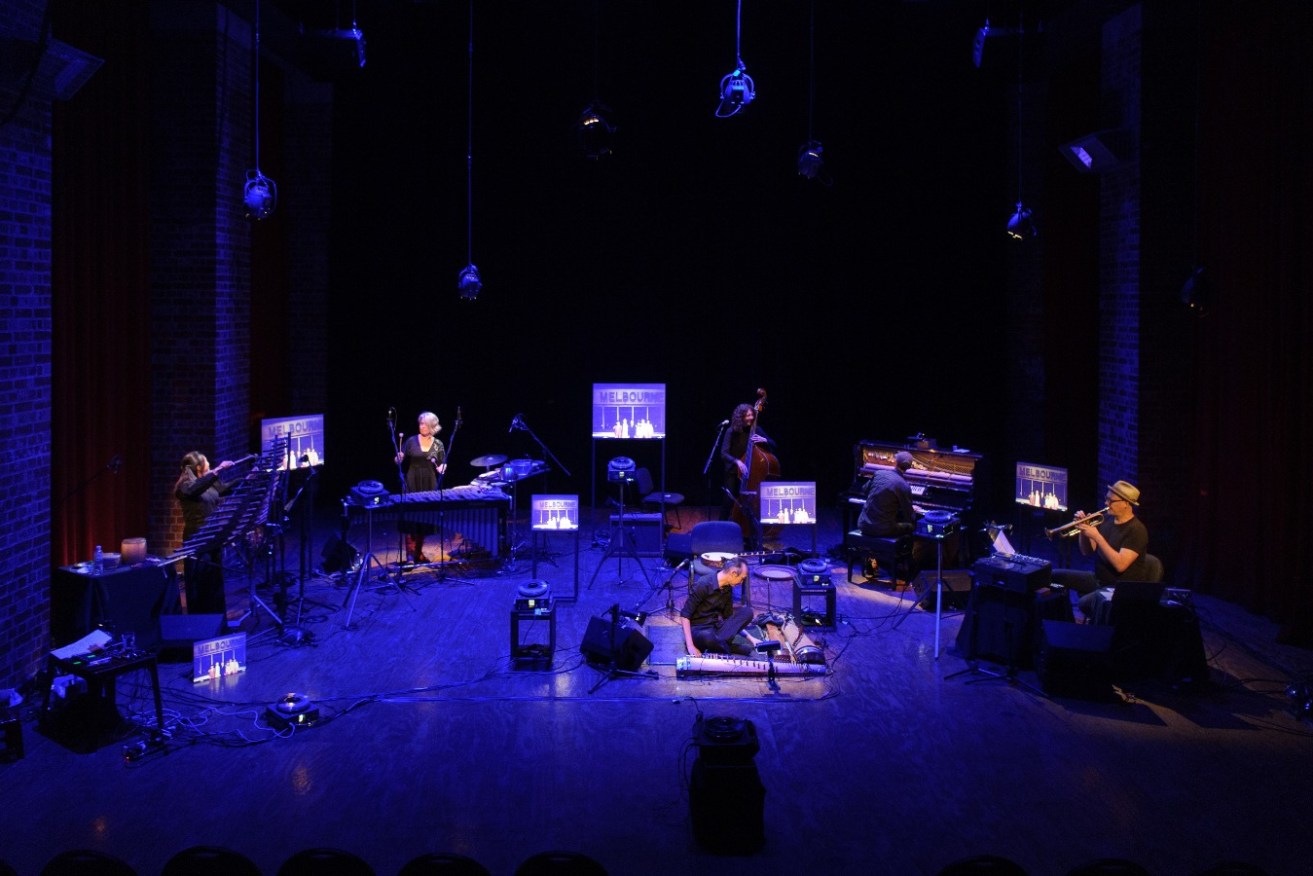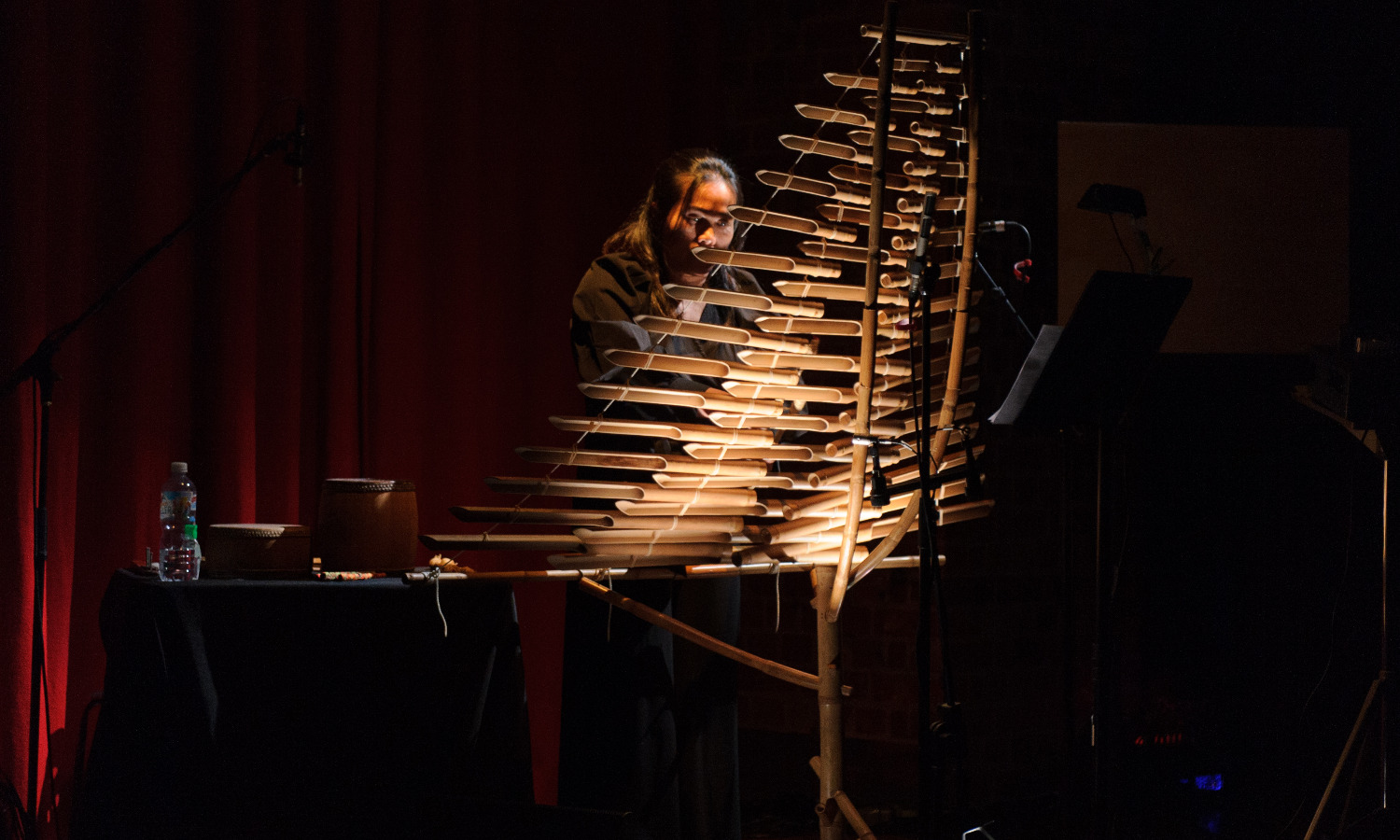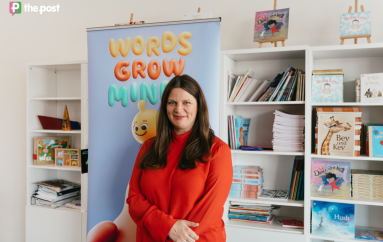Music and pictures come together in Dung Nguyen’s story of emigration
Musician Dung Nguyen revisits his tale of family, connection and music during his emigration to Australia in 1988 through a multimedia experience of story, traditional Vietnamese instruments and archival photographs for this year’s OzAsia Festival.


The multimedia show '1988' on stage. Photo: Sarah Walker
The migrant story of leaving home and arriving in another country in search of a fresh start or new life is one many Australians intimately understand, and Dung Nguyen, a musician from South Vietnam, will be sharing his tale in 1988.
Nguyen and trumpet and electronics player Peter Knight lead a six-piece ensemble, with the music accompanied by archival images documenting Nguyen’s story.
Emigrating to Australia in 1988 to join his father, a 16-year-old Nguyen faced a world where he struggled to communicate with the people around him.
“I think the most challenging thing was the language barrier,” he says.
“I had friends back in Vietnam and I had no problem with communication with friends, and I would go out and play sports.
“Since I moved to Australia, I think it changed so much because I didn’t have friends.
“It took me a long time to feel confident to talk to people and express myself more.”
He says “everything changed” for him when he arrived in Flemington, remembering how different the smell of the air was in Australia.
Nguyen moved to Australia to meet his father, a man he says he barely knew. After being imprisoned in Vietnam, Nguyen’s father set sail for Indonesia as a refugee just days after reuniting with his family.
“I don’t have many memories about my dad,” Nguyen says. “Even when I met him, I think to me he was like a stranger.
“It was so hard to talk to someone and say, ‘Oh, this is my dad’.”

Minh Ha Patmore playing the đàn t’rưn. Photo: Sarah Walker
Despite his complicated relationship with his dad, Nguyen’s relationship with music helped him find his place. As a student of traditional Vietnamese instruments đàn tranh and đàn bầu, he was initially apprehensive about how those around him understood his music. Though, it was a blending of musical cultures that eventually captured his imagination.
“I felt like maybe they don’t understand my music. I was so narrow-minded,” he says.
“If I stayed back in Vietnam until now, I don’t think I’d be able to appreciate world music.”
1988 will feature three Vietnamese instruments: Nguyen on the 16-string đàn tranh and single-string đàn bầu, zither-style instruments, and Minh Ha Patmore on the đàn t’rưn, a bamboo xylophone. The đàn bầu is a monochord instrument, central within Vietnamese folk music that requires bending with the left hand to change the note and control the vibrato, creating a sound “like water”.
Musicians Erik Griswold on piano and melodica, Vanessa Tomlinson on vibraphone and percussion and Helen Svoboda on bass and vocals will join Nguyen, Knight and Patmore to create the evocative soundscape of Nguyen’s story.
To paint the picture of the story, visual artist and visual director Phuong Ngo has curated a series of personal, archival images and photos, displayed by a vintage slide projector. Ngo’s work is known for the ways it interprets history, memory and place, with a focus on stories of Vietnamese diaspora.
“Music has pictures as well … it’s not just sound,” Nguyen says.
“It includes pictures and time and history.”
Nguyen reflects that his story is one of thousands of migrants who have faced challenges travelling to and arriving in Australia and hopes that people enjoy and appreciate his Vietnamese music as a blend of musical sounds and cultures.
“I feel very lucky that in 1988 when I moved it was a turning point for me to become me,” he says.
“Many other migrants have amazing stories too. Every single person, they have their own story and different experience.”
1988 will be presented by Dung Nguyen and Peter Knight at Space Theatre on October 24 as part of the 2023 OzAsia Festival, which opens on October 19.
This article is republished from InReview under a Creative Commons licence. Read the original article.
InReview is an open access, non-profit arts and culture journalism project. Readers can support our work with a donation. Subscribe to InReview’s free weekly newsletter here.




